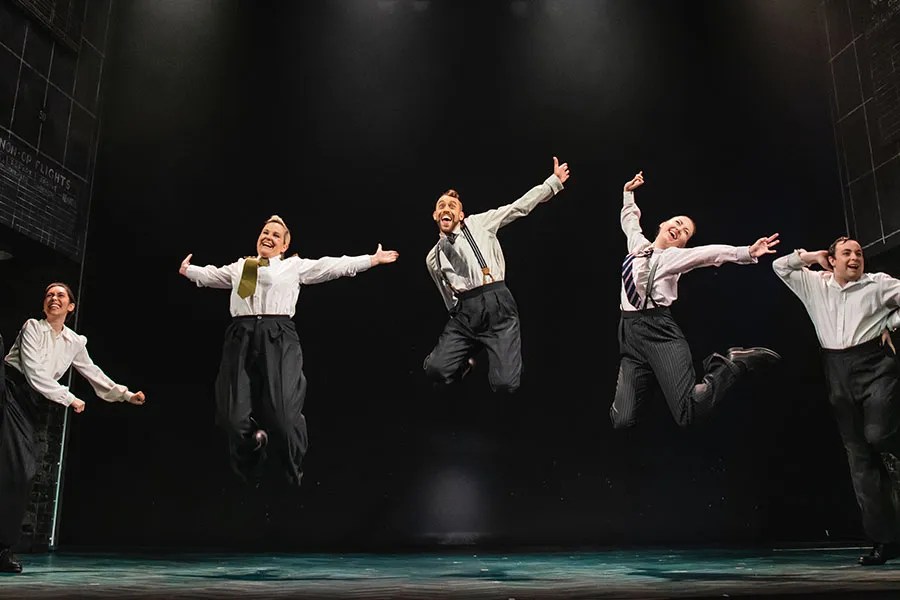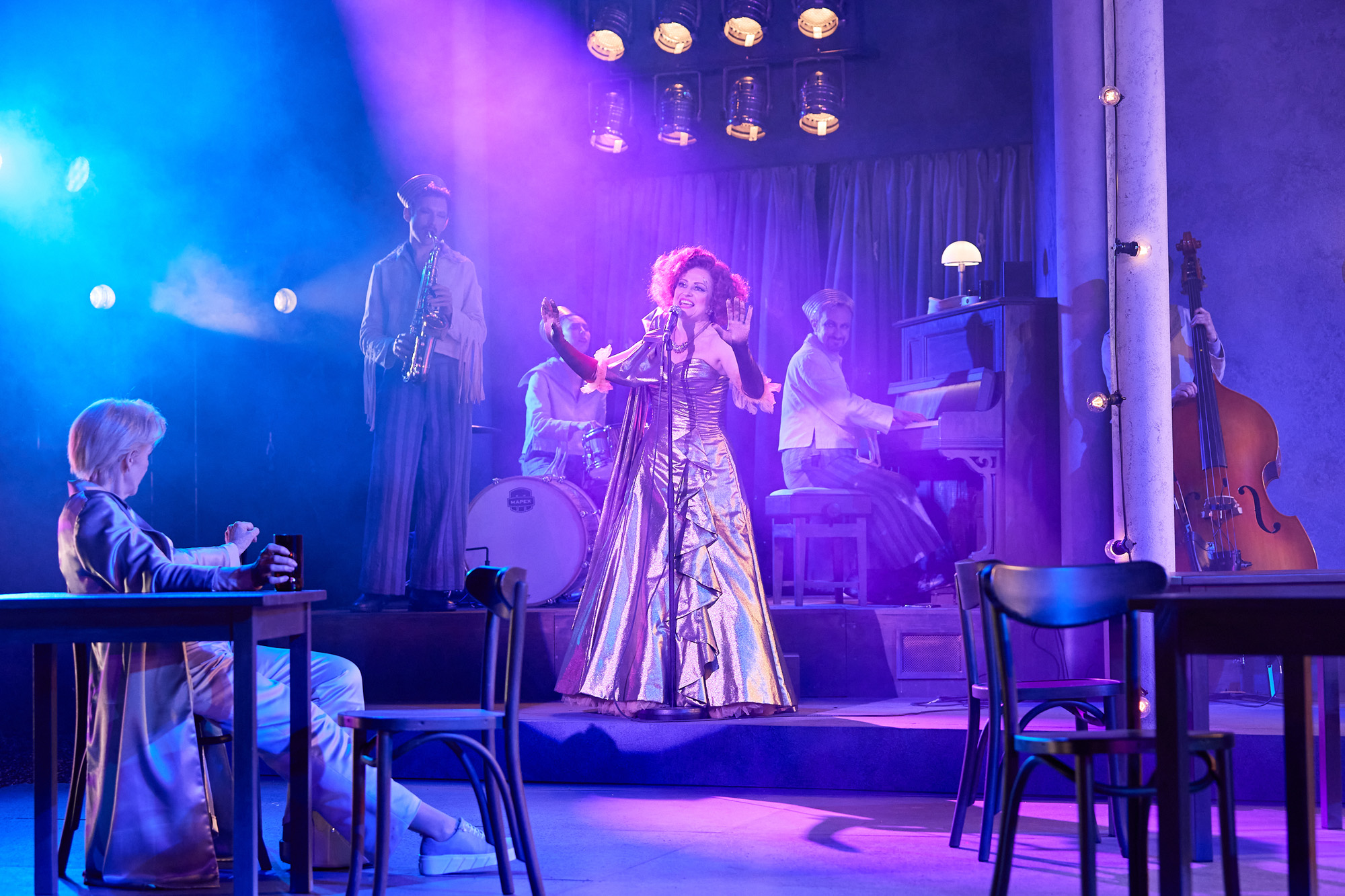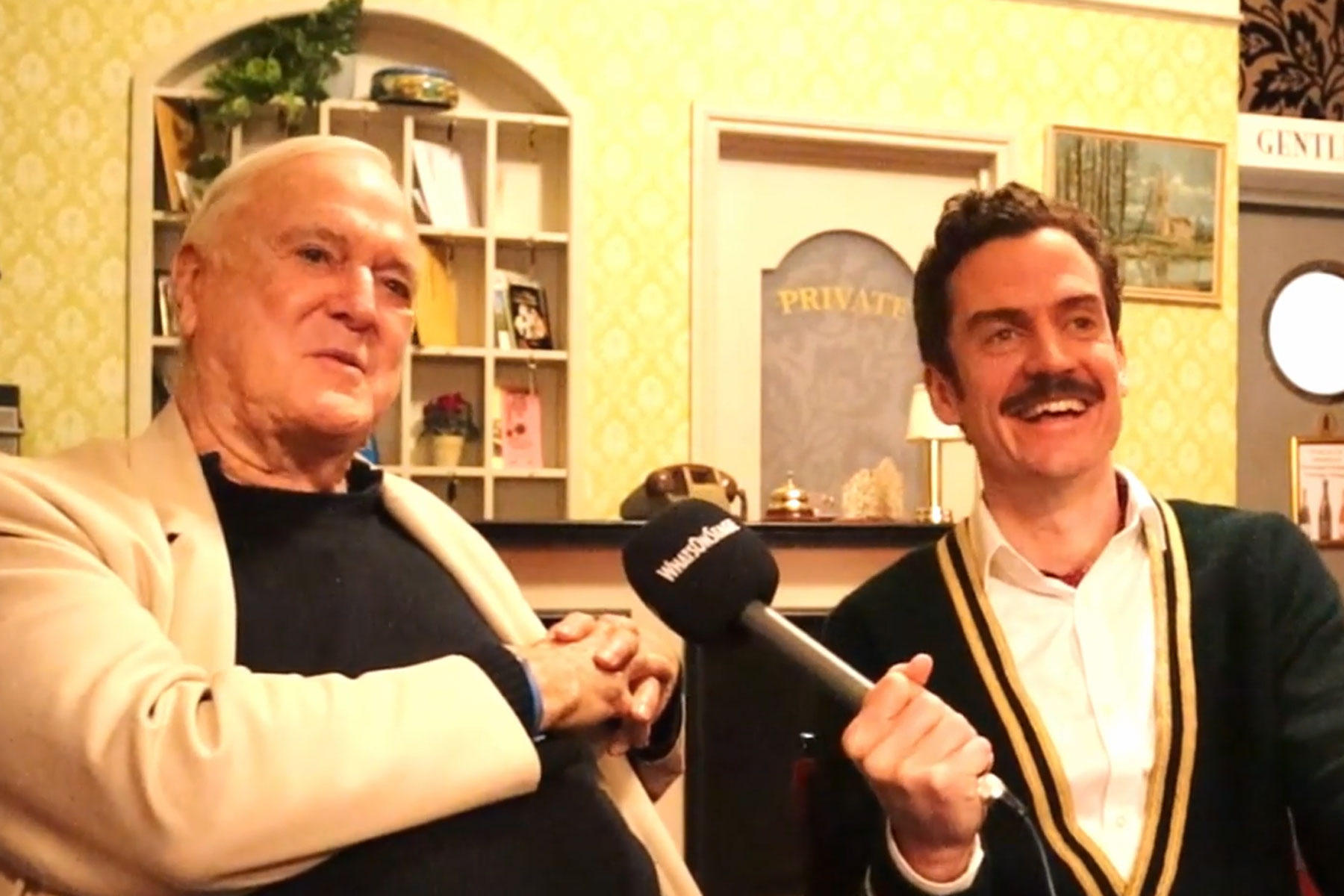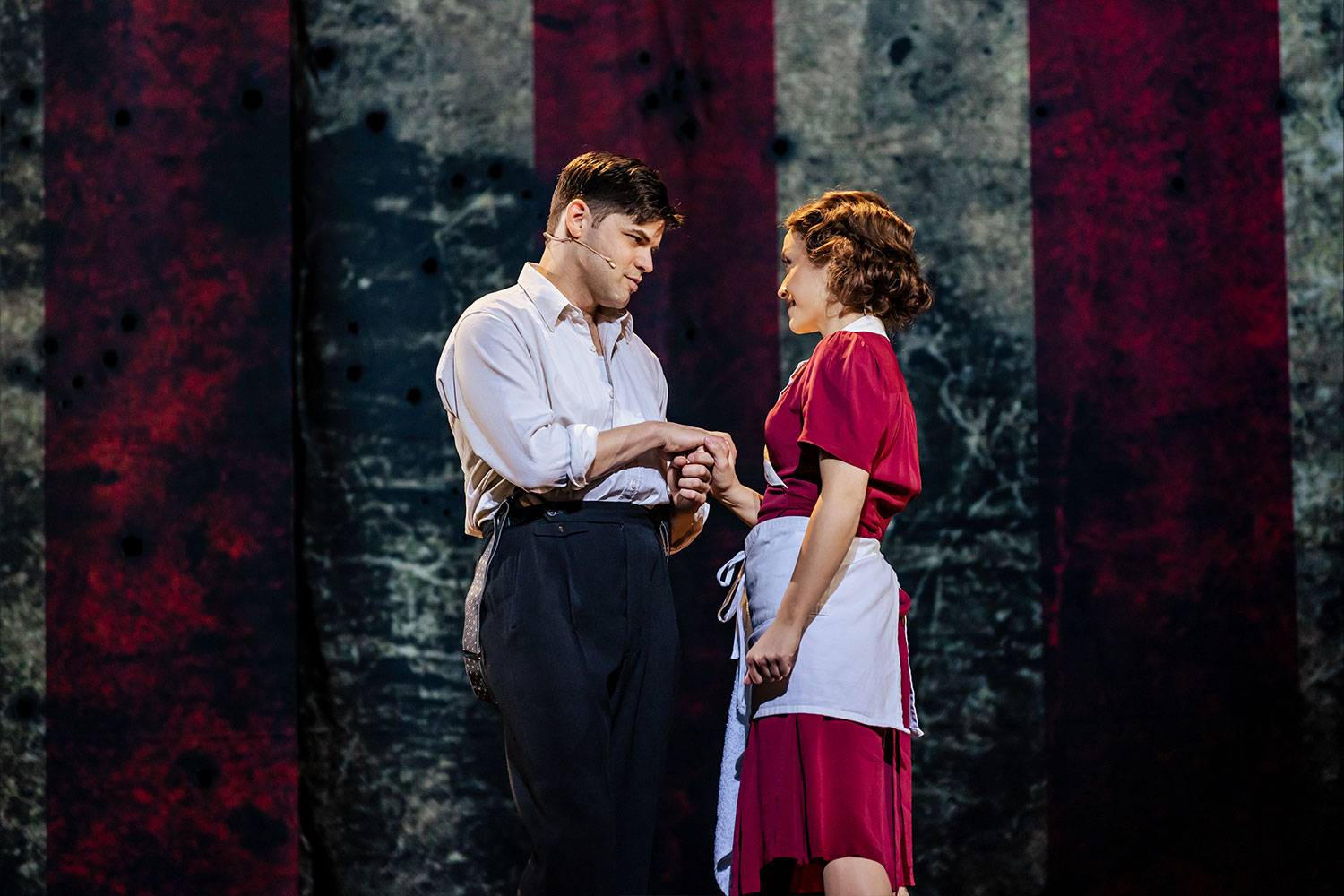The Letter
Somerset Maugham’s 1927 melodrama was adapted from his own short story with a great dramatic twist. Leslie Crosbie, the wife of a British rubber planter on the Malay Peninsula, is reported to have killed a man, Geoffrey Hammond, who tried to rape her while her husband was away on business in Singapore. In the final pages of the story, after an acquittal at her trial for murder, she casually tells the truth in direct speech: Hammond was a lover who had deserted her for a Chinese woman.
In the theatre, Leslie has to perform both speeches herself, and the flaw in Alan Strachan’s otherwise sensitive and confidently laid out production is that Jenny Seagrove makes no great distinction between them. Instead of a woman covering up her guilt and then collapsing into confessional anguish, she remains the same taut, tight colonial lady of leisure from start to finish. Maybe this is the point.
If so, it scuppers the power of a play that hinges on the criminal act of Leslie’s defence lawyer, Howard Joyce, suborning a witness. Anthony Andrews as Joyce makes it clear that he does so more out of friendship for Robert Crosbie, Leslie’s decent but dull husband, than out of pity for Leslie. She had written Hammond a letter, begging him to come and see her on the day of his murder. Joyce’s serpentine assistant in his Singapore office, Ong Chi Seng, offers to get hold of the letter, but there is a price to pay, a price that will decimate Robert’s fortune.
Unknown to Robert, Joyce authorises this purchase after a visit to the Chinese quarter, where Paul Farnsworth’s imposing, sunset-imbued plantation set of rattan screens, bamboo and shiny green foliage gives way to the red curtains and cushions of an opium den. Here, the unnamed Chinese woman (in the story an old hag, which makes Leslie’s anger even more acute) exudes, in Liz Sutherland’s expressive beauty, a heart-breaking sense of loss.
The play opens with six shots in the dark and the sight of Hammond’s corpse – he was a man mountain, apparently, as well as a raffish charmer, which is slightly odd – lying across the veranda. When Neil Bartlett directed Joanna Lumley in the play at the Lyric Hammersmith in 1995, he deployed the Chinese characters, including Ong Chi Seng, as both house boys and scene shifters, hinting at subversion. Strachan saves this element for Jason Chan’s performance as Ong, strongly implying revenge in the exploitation of the colonials’ venality and not so latent racism.
Although it’s easy to sympathise with Leslie’s boredom in marriage, it’s harder to understand Joyce’s friendship with Andrew Charleson’s bluff and lumpy planter. Instead, Andrews suggests a buttoned up psycho-sexuality that may include – impossible to believe – a major crush on his old chum. Andrews is so on top of his own performance that his repertoire of airy gestures, barking vocal variations and clinical chin-jutting takes Joyce into another stratosphere of undiluted unpleasantness.
It is good to be reminded of Maugham’s talent as both story-teller and playwright (especially at a time when the new Maugham film, The Painted Veil, offers such a disgracefully distorted account of another great heroine’s emotional vulnerability). But I feel that Seagrove has missed a real opportunity to soar in the narrow, but intensely executed, vision of her role.
– Michael Coveney










